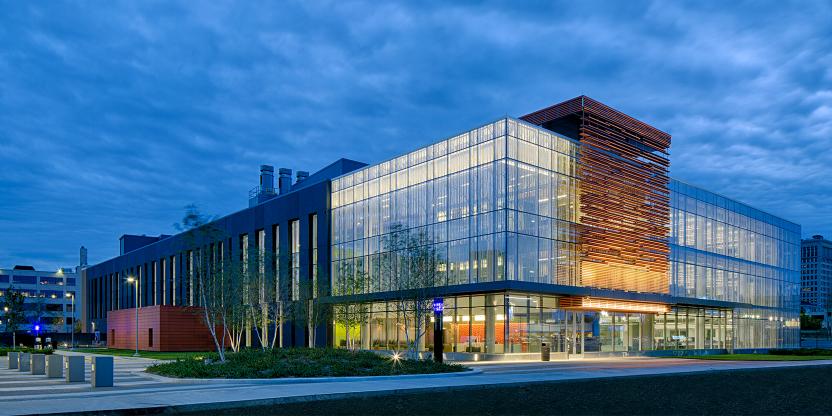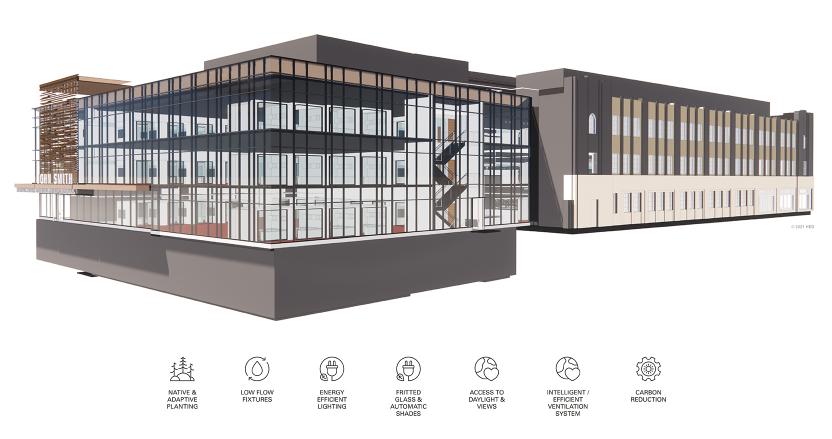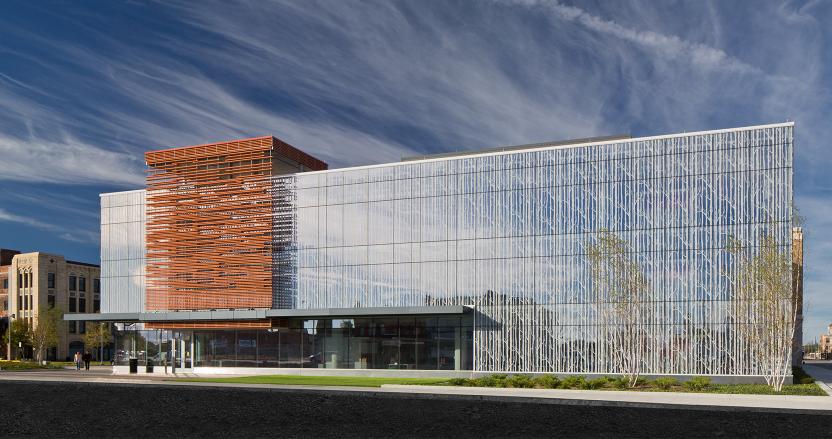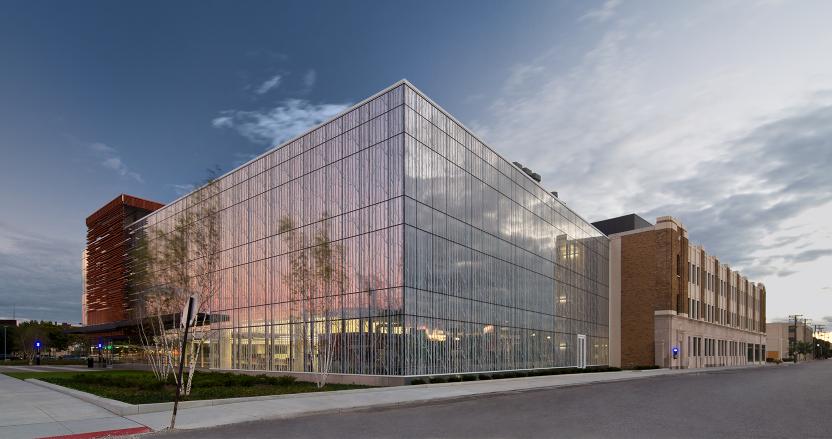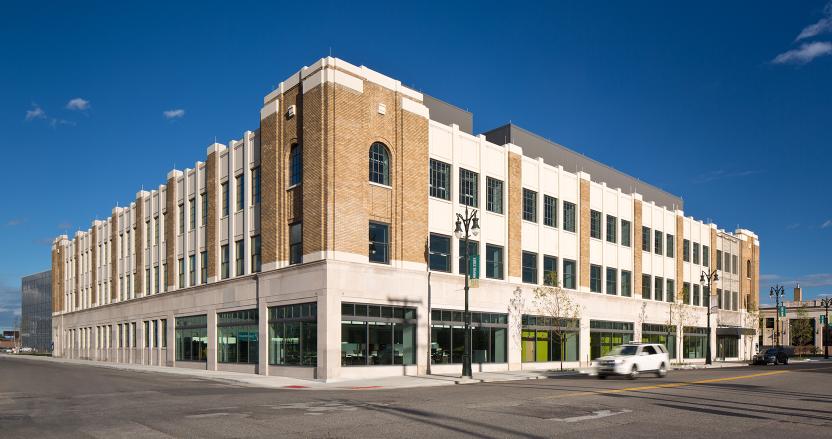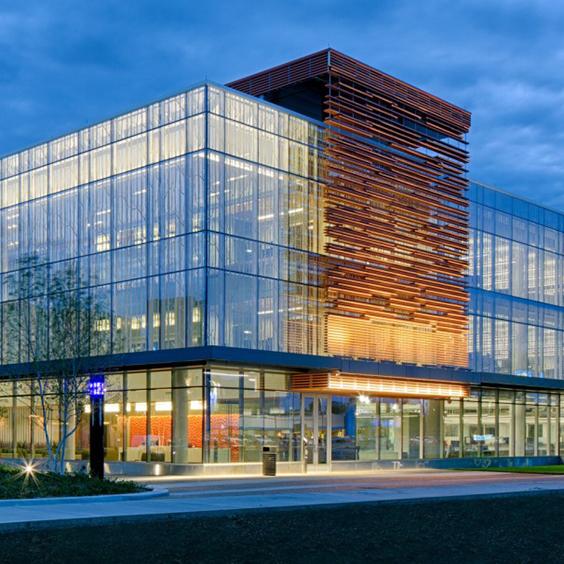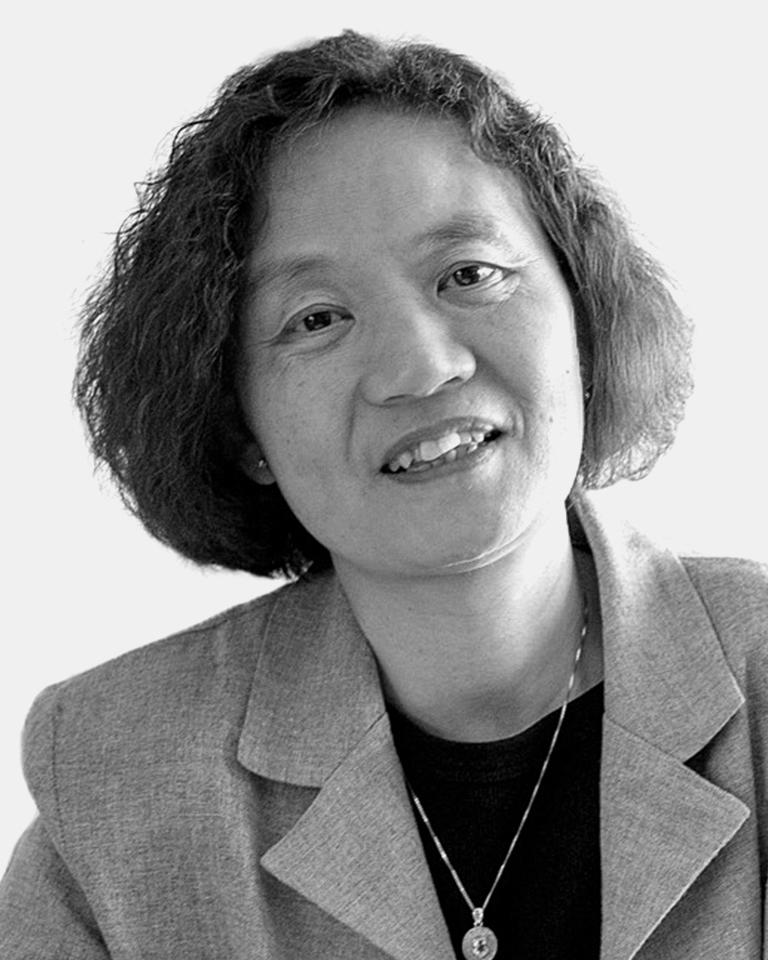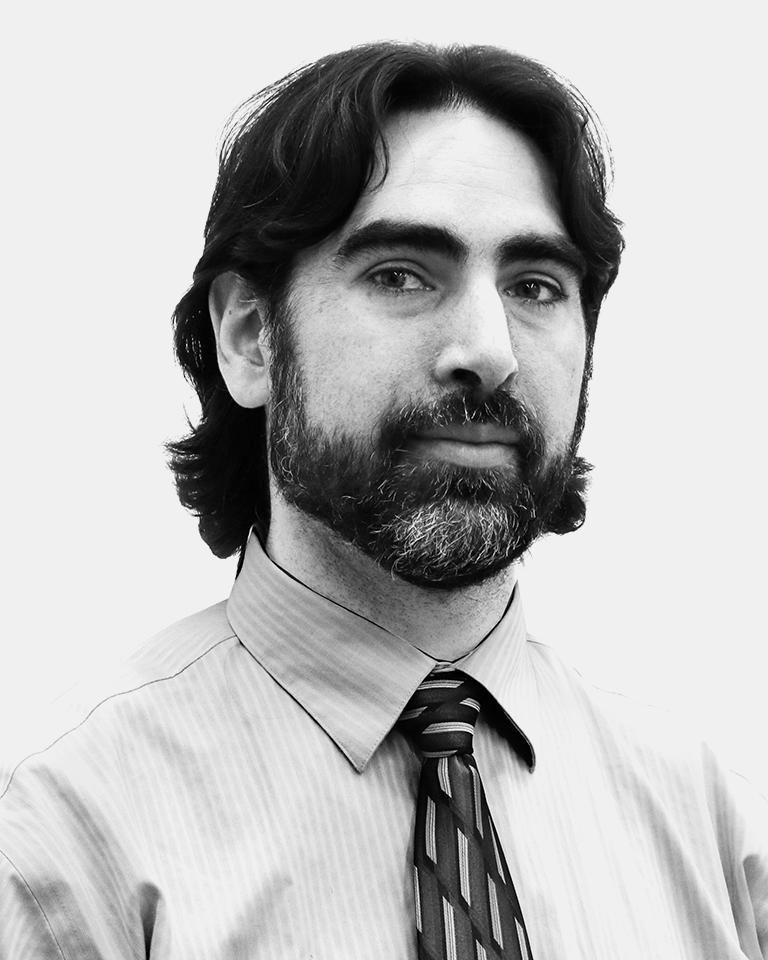The LEED Gold Wayne State University Integrative Bioscience Center (IBio) is designed to promote scientific discovery through team science. Henry Ford Hospital's Bone and Joint Center joins Wayne State University to create a true multidisciplinary research center that brings together 60 principal investigators, researchers, and clinicians from diverse disciplines.
A rigorous analysis of the existing building led to a reuse of the circa 1927 facility and restoration of the historic brick and stone faade. A new addition extending toward a major street is sheathed with a fritted glass curtainwall, producing a high¬tech counterpoint to the turn of the century historic structure. The exterior renovation utilizes multiple passive design strategies, including strategically located and sized fenestration, triple glazing, selective shading, and fritted glass and a light-colored roof to mitigate heat gain. The interior is filled with natural light, calming outdoor views, and has an airy, open floorplan to promote occupants’ comfort and well-being. The position of the facility on the prominent Woodward Avenue creates a gateway between the Wayne State University campus and Detroit's North End neighborhood, strengthening the connection between campus and community and acting as a catalyst to stimulate area economic recovery.
A rigorous analysis of the existing building led to a reuse of the circa 1927 facility and restoration of the historic brick and stone faade. A new addition extending toward a major street is sheathed with a fritted glass curtainwall, producing a high¬tech counterpoint to the turn of the century historic structure. The exterior renovation utilizes multiple passive design strategies, including strategically located and sized fenestration, triple glazing, selective shading, and fritted glass and a light-colored roof to mitigate heat gain. The interior is filled with natural light, calming outdoor views, and has an airy, open floorplan to promote occupants’ comfort and well-being. The position of the facility on the prominent Woodward Avenue creates a gateway between the Wayne State University campus and Detroit's North End neighborhood, strengthening the connection between campus and community and acting as a catalyst to stimulate area economic recovery.
